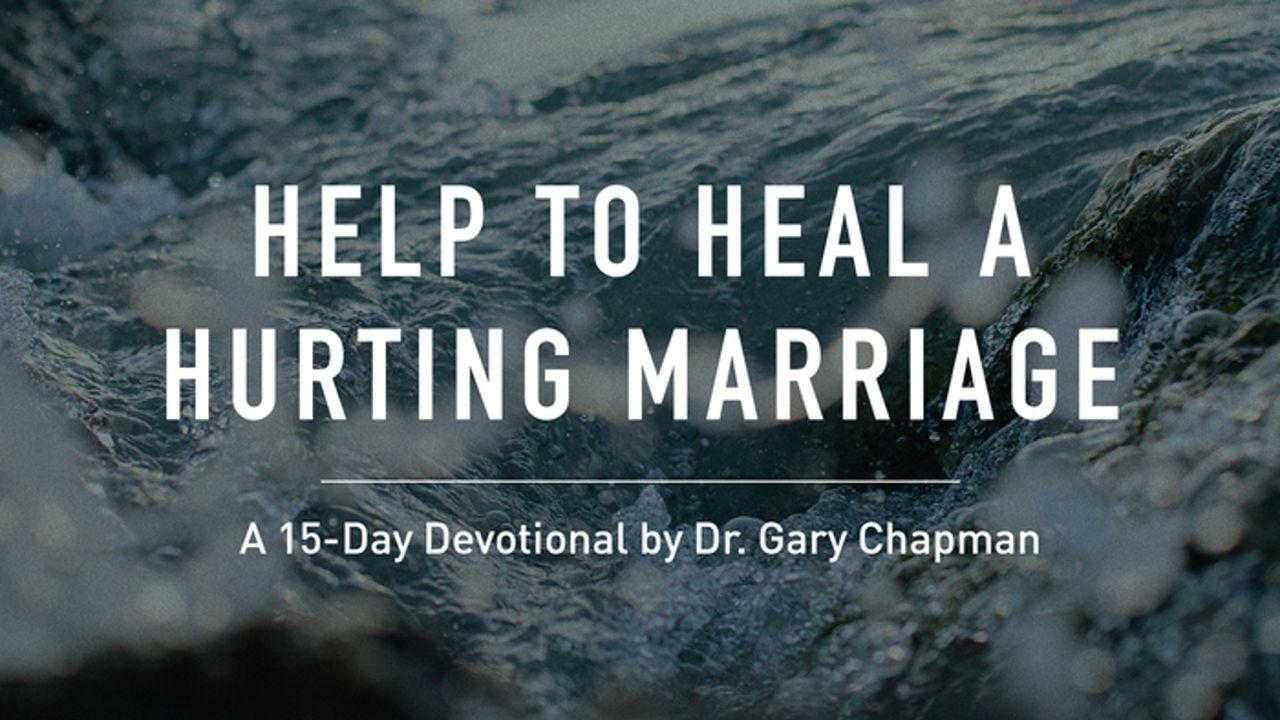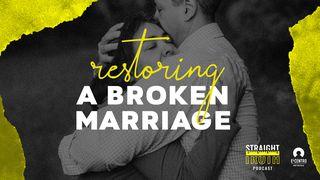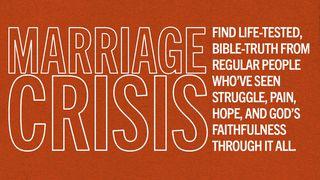Help For A Hurting MarriageSample

Devotion from When Sorry Isn’t Enough by Gary Chapman and Jennifer Thomas
Two Ways to Apologize: Making Restitution / Genuinely Repenting
It was one of those feel-good stories you see in the newspaper and on TV before Christmas. In the Youngstown, Ohio, area, a thief made off with cash from one of those familiar Salvation Army red kettles. In fact, the perpetrator, apparently dressed in a Salvation Army jacket, walked away with the money and the kettle while the bell ringer was taking a break.
But what could have been a sad “stealing from the poor” story turned into something more heartwarming two days later, when someone anonymously left $130 and a note of apology at the Salvation Army’s office. “Here is the money I took plus money for a new kettle and bell . . . Please forgive me.” The unidentified wrongdoer not only apologized, he or she made restitution, making a tangible effort to right the wrong they committed.
The idea of “making things right” to make up for a wrong is embedded within the human psyche, from our judicial system to the arena of family relationships. If Sophia’s little brother Jacob steals her favorite toy, Mom or Dad makes him give it back. If a criminal steals from someone, a judge orders him to repay his victim in some way. Rather than simply spending time in prison, the criminal needs to make efforts to make up for the wrong to the one who was wronged.
For some people, the statement, “It is not right for me to have treated you that way,” must be followed up with “What can I do to show you that I still care about you?” Without this effort at restitution, the person wronged will question the sincerity of the apology.
While in some cases, making restitution is appropriate, in other situations, many people can identify with the wife who lamented, “We have the same old arguments about the same old things. What upsets me most is not the offending action—it’s the repetition of the offending action. He apologizes. He promises not to do it again. Then he does it again—the ‘it’ being as small as leaving the bathroom light on or as annoying as needless crabbiness.”
This wife doesn’t want “sorry.” She wants her husband to repent.
The word repentance means “to turn around” or “to change one’s mind.” It is illustrated by someone who is walking west and, for whatever reason, suddenly turns 180 degrees and walks toward the east. The individual realizes that his or her present behavior is destructive. The person regrets the pain he or she is causing the other person, and chooses to change his behavior.
Repentance is more than saying, “I’m sorry; I was wrong. How can I make this up to you?” It is saying, “I’ll try not to do this again.”
All true repentance begins in the heart. We recognize that what we have done is wrong, that our actions have hurt the one we love. We don’t want to continue this behavior, so we decide that with God’s help, we will change. Then we verbalize this decision to the person we have offended. Jim said, “I expect the person to tell me they were wrong and tell me that they’re going to make changes so that it won’t happen again. I want them to be realistic and tell me that they know they have to work on it so I should be patient with them.”
The problem with not verbalizing your intention is that the offended person cannot read your mind. He or she doesn’t know that in your heart you have decided to make changes. It might take weeks or months for them to observe the difference in you, but even then they might not know what motivated the transformation.
It is perfectly fine to tell them that you hope they will be patient with you because you know you will not be 100 percent successful immediately, but that it is your intention to change this destructive behavior. Now they know your intention and sense that your apology is sincere so they can now forgive you even before the changes are actually made.
REACT: Repentance has been described above as turning around or changing your mind. In what other ways have you heard repentance defined? Think of a time when you wanted your spouse or another person close to you to not just apologize, but change their behavior — what happened? How might restitution work out both in society at large and within our personal relationships? When is a time when you chose to not just say “I’m sorry” but to make restitution or to change your behavior?
Scripture
About this Plan

A 15-day devotional drawing from Dr. Gary Chapman's popular three book set, "Help to Heal a Hurting Marriage." Excerpts from Loving Your Spouse When You Feel Like Walking Away, Anger and When Sorry Isn't Enough.
More
We would like to thank Moody Publishers for providing this plan. For more information, please visit: https://www.moodypublishers.com/books/marriage-and-family/help-to-heal-a-hurting-marriage/
Related Plans

Don't Walk Away From Your Marriage By Pete Briscoe

Restoring A Broken Marriage

God Can Restore All Things (Even Your Marriage)

Pursuing Love While Considering Divorce

Marriage Crisis

Dos and Don'ts: A One-Week Plan to Help Your Marriage

Enduring Marriage By Pete Briscoe

Fighting for Your Marriage

Being Real In Our Marriages
